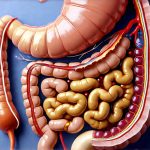The intricate connection between our physical and mental states is increasingly recognized, shifting away from viewing them as separate entities. For decades, mental wellbeing was largely attributed to neurological factors – brain chemistry, psychological experiences, and genetic predispositions. However, a revolutionary perspective has emerged in recent years: the profound influence of our gut microbiome on our emotional and cognitive health. This isn’t simply about digestive comfort; it’s about understanding that trillions of microorganisms residing within us are actively communicating with our brains, impacting mood, anxiety levels, even susceptibility to neurological disorders. The gut-brain axis is no longer a fringe concept, but a central focus in cutting-edge research, promising new avenues for preventative and therapeutic interventions.
This burgeoning field challenges traditional approaches to mental healthcare. While therapy and medication remain vital tools, addressing the root causes of imbalance often requires looking beyond the brain itself. A growing body of evidence suggests that optimizing gut health – through diet, lifestyle, and targeted support – can significantly improve mental wellbeing, offering a holistic approach that addresses the interconnectedness of mind and body. It’s important to note that this isn’t about a quick fix; it’s about cultivating long-term habits that nurture both physical and mental resilience. Understanding how our gut impacts our brain is crucial for taking proactive steps towards a healthier, happier life. Perhaps starting with understanding what to eat when your gut is inflamed can be a good first step?
The Gut-Brain Axis: A Two-Way Street
The gut-brain axis (GBA) isn’t a single pathway but a complex bidirectional communication network linking the gastrointestinal tract with the brain. This connection happens through several interwoven channels, making it far more sophisticated than previously imagined. – The vagus nerve acts as a direct line of communication, transmitting signals in both directions. – The immune system plays a crucial role, as gut health significantly impacts inflammation levels throughout the body, including the brain. – And most importantly, the microbiome itself produces neurotransmitters – chemical messengers like serotonin and dopamine – that directly influence mood and cognitive function. It’s this intricate interplay that makes the GBA so powerful.
The composition of our gut microbiome is incredibly personal, shaped by factors such as genetics, diet, lifestyle, geographic location, and even mode of birth. A diverse and balanced microbiome is generally associated with better health outcomes, both physical and mental. However, modern lifestyles – characterized by processed foods, antibiotic overuse, chronic stress, and lack of sleep – can disrupt this delicate balance, leading to dysbiosis, an imbalance in gut bacteria. Dysbiosis has been linked to a wide range of conditions, including anxiety, depression, irritable bowel syndrome (IBS), and even neurodegenerative diseases. It’s also important to consider how to maintain gut health, especially when life gets stressful.
The impact isn’t one-way; our mental state also profoundly affects our gut health. Stress, for instance, can alter the microbiome composition, reduce digestive function, and increase intestinal permeability – often referred to as “leaky gut.” This allows undigested food particles and toxins to enter the bloodstream, triggering an immune response and further exacerbating inflammation. It’s a vicious cycle, highlighting the need for integrated strategies that address both mental and physical wellbeing. Cultivating a healthy gut isn’t just about what we eat; it’s about managing stress and prioritizing overall lifestyle factors. Recognizing the role of gut health in food reactions can also help you navigate this process.
Dietary Strategies for Gut Health
Diet is arguably the most significant lever we have for influencing our gut microbiome. A diet rich in fiber acts as prebiotic food, nourishing beneficial bacteria in the gut. – Focus on consuming a wide variety of plant-based foods: fruits, vegetables, legumes, and whole grains. – Fermented foods like yogurt (with live cultures), kefir, sauerkraut, kimchi, and kombucha introduce probiotics – live microorganisms that can help diversify the microbiome. – Reducing intake of processed foods, sugar, and artificial sweeteners is crucial, as these can promote the growth of harmful bacteria.
Beyond specific food choices, mindful eating practices can also support gut health. Taking time to chew your food thoroughly aids digestion and reduces stress on the digestive system. Paying attention to how different foods make you feel allows you to identify potential sensitivities or intolerances. Hydration is also essential; water helps move waste through the digestive tract and supports a healthy microbiome. It’s not about restrictive dieting but rather making informed choices that prioritize gut-friendly nourishment. If you’ve overindulged, consider how to reset your gut afterwards!
Consider incorporating these steps for dietary improvements: 1. Gradually increase fiber intake to avoid digestive discomfort. 2. Experiment with different fermented foods to find what you enjoy. 3. Read food labels carefully and limit processed ingredients. 4. Prioritize whole, unprocessed foods whenever possible. A diverse diet is a happy gut.
The Role of Stress Management
Chronic stress significantly impacts the gut microbiome, creating a negative feedback loop between mental and physical health. When we experience stress, our bodies release cortisol – a hormone that can alter gut permeability and disrupt microbial balance. Long-term exposure to cortisol can lead to inflammation and increased susceptibility to mood disorders. Therefore, incorporating effective stress management techniques is crucial for supporting both gut and mental wellbeing.
Techniques such as mindfulness meditation, yoga, deep breathing exercises, and spending time in nature have been shown to reduce stress levels and promote a healthier microbiome. Regular physical activity also plays a vital role; exercise releases endorphins – natural mood boosters – and can positively influence gut motility. Prioritizing sleep is equally important, as sleep deprivation disrupts the circadian rhythm and negatively impacts both mental and gut health.
Furthermore, cultivating strong social connections provides emotional support and reduces feelings of isolation, which can exacerbate stress. Stress isn’t something to be eliminated entirely; it’s about learning how to manage it effectively. Developing a toolkit of coping mechanisms allows you to navigate challenging situations with greater resilience and protect your gut-brain axis from the detrimental effects of chronic stress. It can also be helpful to address the fear of eating if you have a sensitive gut.
The Future of Gut Health & Mental Wellbeing
Research into the gut-brain axis is rapidly evolving, revealing even more intricate connections between our microbiome and mental health. Personalized nutrition – tailoring dietary recommendations based on an individual’s unique microbiome profile – holds immense promise for preventative healthcare. Fecal Microbiota Transplantation (FMT), while still largely experimental, has shown encouraging results in treating certain conditions related to gut dysbiosis and its impact on mental health.
However, it’s crucial to approach these advancements with caution and avoid self-treating. The microbiome is a complex ecosystem, and manipulating it requires expert guidance. Future research will focus on identifying specific microbial strains that can be targeted for therapeutic purposes, as well as developing more effective strategies for restoring gut balance. The key takeaway is that nurturing our gut health isn’t just about physical wellbeing; it’s an investment in our mental resilience and overall quality of life. As we continue to unravel the mysteries of the gut-brain axis, we unlock new possibilities for a holistic approach to healthcare that recognizes the profound interconnectedness of mind and body. And sometimes, rest is the only remedy when things get tough.


















